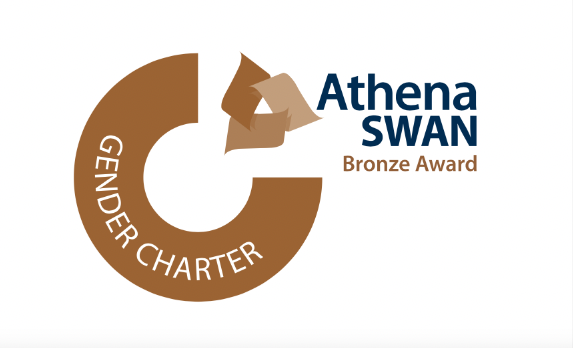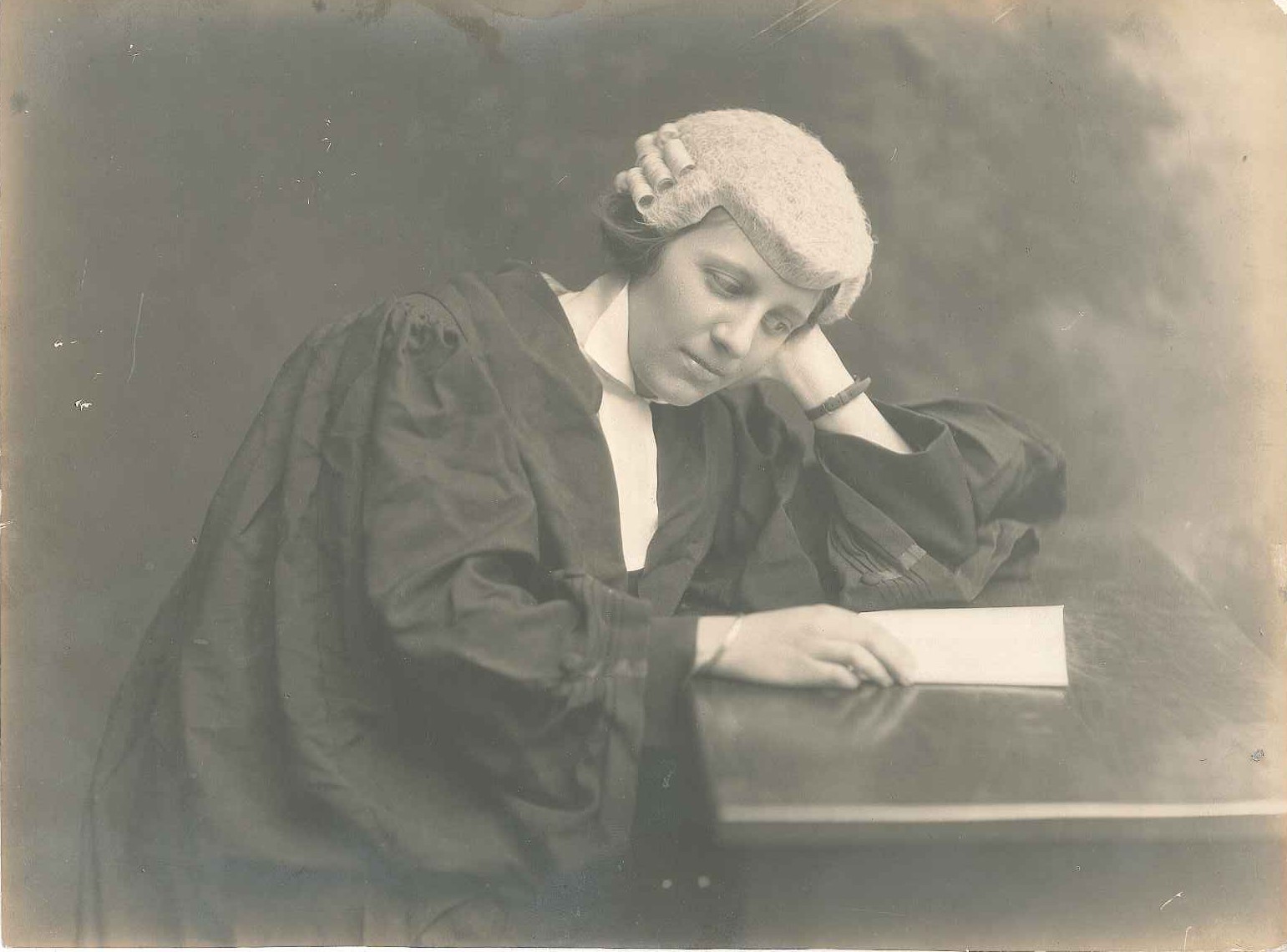The Law School and Athena Swan
The School of Law has a proud and established history of promoting gender equality in Irish society.
(Photos: L to R - Averil Deverell, Frances E Moran, Frances Kyle)
Law School is awarded Athena SWAN Bronze Award
The School of Law at Trinity College Dublin is delighted to announce that it has been granted a Bronze Athena SWAN gender equality Award by Advance HE/Athena SWAN.
Until now, no Law School in the Republic of Ireland has been granted such an award.
Now, as of September 2020, both the Law School at Trinity College Dublin and the Department of Law at Maynooth University have been awarded Bronze - the first two Law Schools in this jurisdiction to receive this important gender equality award.
The award, granted September 2020, is valid until April 2024.

The Athena SWAN (Scientific Women’s Academic Network) Charter is the internationally recognised quality mark for gender equality in universities/colleges.
The Charter was established in 2005 by the Equality Challenge Unit (ECU) in the UK to encourage and recognise commitment to advancing the careers of women in science, technology, engineering, maths and medicine (STEMM) employment in higher education and research. In May 2015 the scope of the Athena SWAN Charter was expanded to cover gender equality in arts, humanities, social sciences, business and law disciplines, staff in professional and support roles, and for trans* staff and students. The Charter, now run by Advance HE, now recognises work undertaken to address gender equality more broadly, not just the barriers to progression that affect women.
The Charter was expanded to Ireland in 2014, managed by ECU and supported by the HEA. Accreditation under the Charter is made at bronze, silver and gold levels. Trinity College Dublin has a bronze medal at institutional level, awarded in 2015 and renewed in 2019, but Schools and Faculties can also apply separately; a number in TCD have already carried out the process. More information about the Charter in Trinity can be accessed here.
The application process involves the gathering of quantitative data broken down by gender, and the conduct of surveys of both staff and students; followed by the writing-up and devising of an Action Plan for gender equality.
Five Schools at Trinity – Social Work and Social Policy; Physics; Genetics and Microbiology; Psychology; and Law – have secured bronze Athena SWAN awards in the latest round. More information here.
Gender Equality and the School of Law
Dr. Frances Moran was appointed Reid Professor of Criminal Law in 1925 and Regius Professor of Laws in 1934 and was the first woman law professor and Senior Counsel in Ireland. Trinity College Dublin’s Law School staff published the first and only study on gender in the Irish legal professions in 2003 (Bacik, Ivana, Costello, Cathryn & Drew, Eileen, Gender InJustice). Ireland’s 2 women Presidents have both served as academic staff; Mary Robinson and Mary McAleese have been powerful role models and advocates for gender equality. Since 2000 the role of Head of School has been performed by men and women for equal periods of time. Our academic staff has a balanced representation of women and men, and women have strong representation at the higher levels; 75% (3) of our Chairs are held by women.
We have a long tradition of supporting social change through research, teaching and civic engagement. This remains central to the School ethos, aligning with the commitment in Trinity’s Strategic Plan (2020-2025) to ‘courageously advance the cause of a pluralistic, just and sustainable society.’
Our record on supporting gender equality would ring hollow if this was not underpinned by our internal practices and culture. There is, however, a risk of complacency; we cannot assume that gender equality is fully reflected in all our activities, which is why the School, under the leadership of our Head Prof Mark Bell, have engaged in the Athena Swan Department application process, submitting an application in June 2020. To date, no Law School in this jurisdiction has yet to attain a medal, although QUB Law School has a Bronze.
The Self-Assessment Team (SAT)
The Law School applied for a Bronze medal at School level in June 2020. As the first step in the application process, we set up a Self-Assessment Team (SAT), a 12-member committee representative of staff and students at different levels in the School, and that reflects the gender profile of the School. The SAT has been meeting throughout the year.
The work of the SAT has been to oversee the collection of data, the distribution of a survey to staff and students; consultations with staff and students; and the final making of the application, including the data; analysis of the data; and a Gender Action Plan to tackle all the issues identified. The Law School SAT is made up of the following: Ivana Bacik, Catherine Finnegan (Athena SWAN Co-convenors); Mark Bell; Alan Brady, David Fennelly, Marta Lasek-Marty (replaced Roisin Costello), Trish McCorry, Andrea Mulligan, Eoin O’Connor, Ciara O’Connell, Rachel Widdis, James Watson.

Establishment of a Director of Equality, Diversity and Inclusion
The process of review will enable us to provide better supports and measures to enhance the School experience for everyone; staff and students alike. Arising out of our application, we have agreed to establish a new role of Director of Equality, Diversity and Inclusion, to be carried out by Professor Ivana Bacik. The Director will oversee the implementation of the gender action plan arising from the Athena Swan application.
What is Athena SWAN?
The Athena SWAN (Scientific Women’s Academic Network) Charter is the internationally recognised quality mark for gender equality in universities/colleges. The Charter was established in 2005 by the Equality Challenge Unit (ECU) in the UK to encourage and recognise commitment to advancing the careers of women in science, technology, engineering, maths and medicine (STEMM) employment in higher education and research. The scope of the Charter was expanded in 2015 to cover gender equality in arts, humanities, social sciences, business and law disciplines, staff in professional and support roles, and for trans staff and students. The Charter now recognises work undertaken to address gender equality more broadly, not just the barriers to progression that affect women.
The Charter was expanded to Ireland in 2014 on a pilot basis, managed by ECU and supported by the HEA. Accreditation under the Charter is made at bronze, silver and gold levels. Trinity College Dublin has a bronze medal at institutional level, awarded in 2015. For more about the Charter in Trinity, see Diversity and Inclusion.





